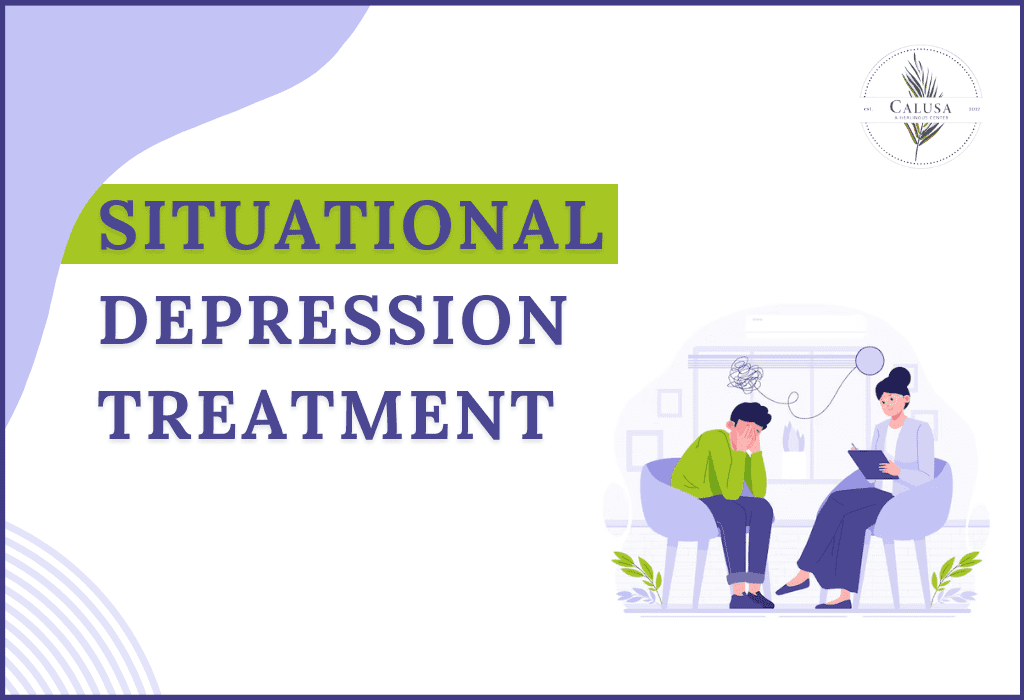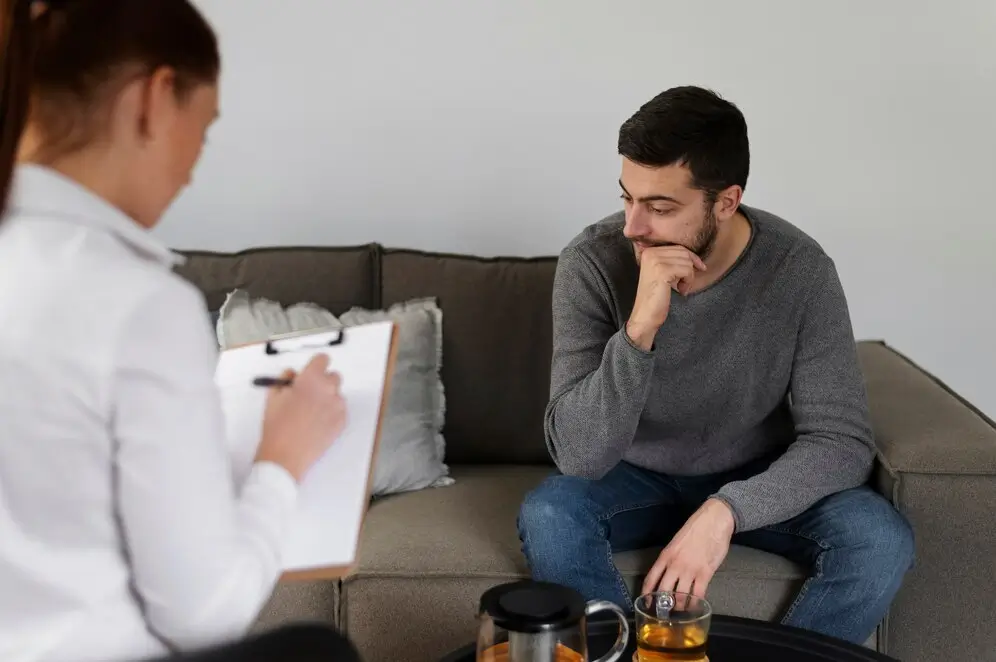Feeling like life is slipping through your fingers? Situational Depression can make everyday tasks feel impossible, leaving you stuck in a cycle of sadness and frustration. When big life changes hit hard, it is not unusual to feel overwhelmed, but ignoring these feelings can make things worse.
Here’s the truth: situational depression doesn’t have to control your life. The right ritual depression treatment can help you navigate these challenges, process your emotions, and regain your footing. Now is the time to take action because the sooner you address it, the sooner you will feel like yourself again.
Does Life Feel Like It’s Slipping Away?
Let’s Understand Situational Depression
Life throws curveballs, and sometimes, those changes are too much to handle alone. Situational depression is a temporary form of depression triggered by a specific event, such as:
- Losing a job
- Experiencing a breakup
- Facing financial struggles
- Grieving the loss of a loved one
Unlike chronic depression, situational depression is directly tied to a life event, but that doesn’t mean it is easy to overcome. Symptoms like persistent sadness, fatigue, and difficulty concentrating can interfere with daily life.
But again, the good thing is that the situation depression treatment is designed to help you recover and reclaim your sense of control. Research by the American Psychological Association (APA) shows that Cognitive Behavioral Therapy (CBT) is effective in reducing symptoms of depression in 60-80% of patients within 12-16 weeks.
Common Signs of Situational Depression
It’s easy to overlook the signs of situational depression, especially when you are caught up in the chaos of life. But knowing what to look for can help you take the first step toward recovery.
Some key symptoms include:
- Persistent sadness: A heavy emotional weight that doesn’t lift.
- Trouble sleeping: Difficulty falling or staying asleep.
- Loss of interest: No longer enjoying activities you initially enjoyed.
- Irritability: Feeling frustrated or short-tempered
- Physical symptoms: Headaches, stomachaches, or fatigue.
These signs can build over time, making it harder to function day-to-day. Recognizing them is the first step toward seeking effective situational depression treatment.
Effective Situational Depression Treatments
When it comes to addressing situational depression, several approaches have been proven to work. Let’s explore some of the most effective options.
Therapy
Professional therapy provides a safe space to explore your feelings and buid coping strategies. Two common approaches include:
- Cognitive Behavioral Therapy: Helps you identify and change unhelpful thought patterns
- Interpersonal Therapy focuses on improvement, with up to 80% of patients experiencing improvement within 12-16 weeks.
Therapy helps you process emotions, navigate challenges, and regain confidence in your ability to handle life’s ups and downs.
Medication
For some people, therapy alone isn’t enough. Antidepressants, such as SSRIs, can stabilize mood and reduce symptoms, making it easier to focus on recovery. Your doctor can help determine if medication is a good fit for you. Data from the World Health Organization (WHO) suggests that combining therapy and medication improves recovery rates in 70-80% of individuals with depression compared to using either method alone.
Lifestyle Adjustments
Small changes can make a big difference in your recovery journey. For example
- Exercise regularly: Physical activity boosts your mood by increasing endorphins.
- Eat balanced meals: Proper nutrition supports both body and mind.
- Stick to a routine: A consistent schedule helps create stability.
These habits don’t just improve your mood. They can also provide a foundation for long-term mental health.
Why Early Action Matters
Situational depression doesn’t just go away on its own. In fact, studies show that untreated situational depression can develop into major depressive disorders in nearly 50% of cases.
Acting quickly ensures you get the right support before symptoms worsen. Early intervention is key to faster, more effective recovery.
The Role of Calusa Recovery
At Calusa Recovery, we understand that everyone’s journey is unique. That’s why our approach to situational depression treatment is tailored to meet your specific needs. Whether through therapy, lifestyle adjustments, or holistic care, we are here to help you find the tools you need to heal.
When you choose Calusa Recovery, you are not just a client for us; you are an important part of the community committed to your well-being.
How can you start Your Healing Journey?
Recovery begins with small steps. Here are a few actions that you ca take today to feel better:
- Connect with loved ones: Open up about how you are feeling.
- Take care of your body: Eat well, sleep enough, and stay active.
- Practice mindfulness: Deep breathing and meditation can reduce stress.
These small steps can ease symptoms, but professional ritual depression treatment will provide the support and guidance needed for lasting recovery.
Start Your Recovery Journey
Situational depression can feel overwhelming, but you do not have to face it alone. Effective situational depression treatment is within reach, and it’s designed to help you regain control of your life.
At Calusa Recovery, we are here for you to help you with compassionate, personalized care that addresses your unique needs. Don’t wait. Take the first step toward healing today.
Your Journey to a Brighter Tomorrow
FAQs
Q: How to help someone with situational depression?
A: Offer emotional support by listening without judgment. Encourage healthy habits like exercise, sleep, and a routine. Suggest seeking therapy for professional guidance and be patient as they navigate their recovery journey.
Q: Does situational depression require medication?
A: Medication isn’t always necessary. Therapy, lifestyle adjustments, and time often help. However, in severe cases, antidepressants may be prescribed to stabilize mood and ease symptoms, complementing other forms of treatment.
Q: Does Wellbutrin help with situational depression?
A: Wellbutrin can help alleviate symptoms of situational depression by improving energy and mood. A doctor will determine if it’s the right fit based on individual symptoms and health history.
Q: What is ECT for situational depression?
A: Electroconvulsive Therapy (ECT) uses controlled electric currents to treat severe depression when other treatments fail. It’s rarely used for situational depression but can help in extreme, treatment-resistant cases.










